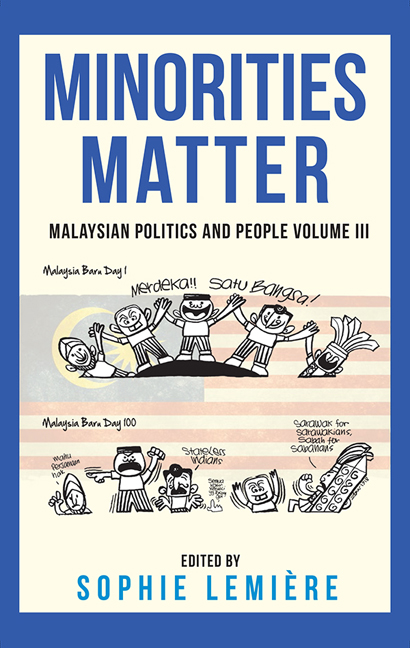Introduction
Published online by Cambridge University Press: 25 January 2020
Summary
On 9 May 2018, a New Malaysia was born. Like an ellipse in time, this moment finished 61 years of single-party dominance and has made its mark on history by bringing to an end the rule of one of the oldest postcolonial dominant ruling parties. A historical moment that opened the doors to a new government was achieved by the unexpected coalition of the former old guard of the United Malays National Organisation (UMNO) who had resigned in the years and months before the election, their former opponents from Parti Keadilan Rakyat (PKR), the Democratic Action Party (DAP) and the Islamist Party (PAS) breakaway party Parti Amanah Negara (AMANAH). Yet, in spite of the uniqueness of this victory, Malaysian democracy has yet to show its true colours.
A year later, the stagnation of reform in New Malaysia reveals the existence of a deep structural problem in Malaysia: the nature of its political culture. Political culture is a window through which people perceive the functioning of politics. It is entrenched in a society's political imaginary, culture, beliefs and contributes to the shaping of their opinions, and their social and electoral behaviour. Political culture is at the origins of the recurrent abuse of power at every level of society. The resistance in the administration as denounced by the Prime Minister (Free Malaysia Today, 2018e) is one of the symptoms of a more systemic problem.
In Malaysia, the question of identity is tied to that of politics, religion, and the political imaginary. For many years the fate of the Malays, the majority of the population, was intrinsically linked to the destiny of UMNO. Yet over the years, UMNO's advocacy for the Malay agenda lost its nationalist and anti-imperialist tone and turned into a sterile ultranationalist, and sometimes religious (Islamic), rhetoric. The agenda of the New Malay (Melayu Baru) (and not the New Malaysia) gave way to years of misguided State-led economic and socio-political policies and to an intellectual apathy which failed to craft an inclusive national identity.
Malaysia is one of the few countries in the world where the majority of the population is economically advantaged by legal provisions and State policies; the others are Fiji, Brunei and South Africa.
- Type
- Chapter
- Information
- Minorities MatterMalaysian Politics and People Volume III, pp. xiii - xxPublisher: ISEAS–Yusof Ishak InstitutePrint publication year: 2019

